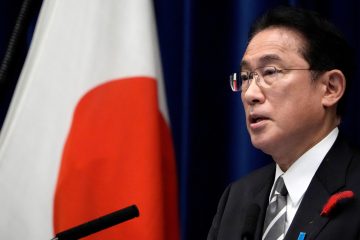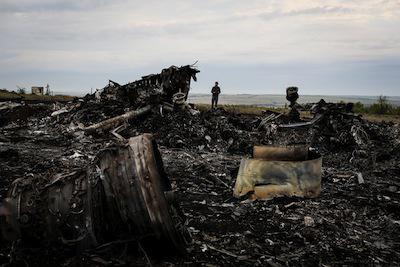
Tweets: What ought to be their evidentiary value and legal status under international law?
On 18 July 2014 the world awakened to yet another tragedy: the downing of the Malaysian Airlines flight HM17 over pro-Russian separatist territory of Ukraine, which in its horrendous totality shocked the collective conscience of the public. Claims of responsibility for the tragedy spread over the then innocuous social media portal, Twitter, and instantly internationalized what had been perceived as a largely domestic conflict. What gradually came into view was the deployment of Twitter as a propaganda tool and a means for nefarious communication, subject to virtual deletion and emendation for the purposes of advancing a military objective and a political cause. References to tweets and videos bearing an imprint of responsibility were invoked in the Security Council’s emergency meeting hours later, where the US Ambassador to the United Nations, Samantha Power, cited them in her impassioned speech.
This raises a legal conundrum, namely, what is the legal status of a boastful Twitter confession by separatist leaders of a state-sponsored rebel group containing first-hand accounts and admissions of responsibility for shooting down a plane in the midst of a conflict? Are tweets a novel form of incriminating evidence in a rapidly changing terrain of modern warfare? What ought to be their evidentiary value and legal status under international criminal law, international law of armed conflict and international humanitarian law? Finally, what criminal liability should those claiming responsibility bear under domestic and international law?
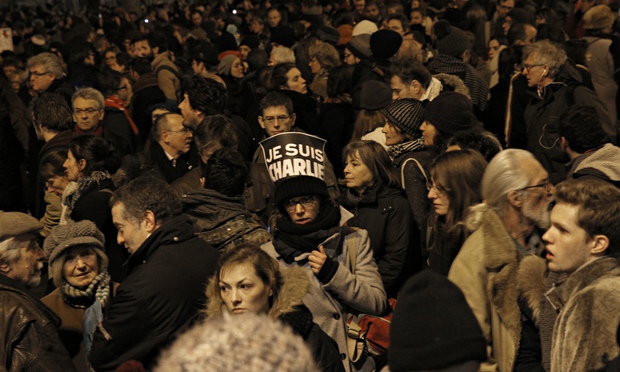
‘Charlie Hebdo’ and the end of the French exception
Today many are asking why Parisians have been attacked in their own city, and by their own people. But for many years the question for those following the issues of foreign policy and religion was why France had suffered so little terrorism in comparison to other European states. After the bombs on the Paris Metro and a TGV line in 1995, there were no significant Islamist attacks until the fire-bombing of the Charlie Hebdo office in November 2011, and the killings of three French soldiers (all of North African origin) and three Jewish children (and one teacher) by Mohamed Merah in Toulouse four months later. These attacks turn out to have been a warning of things to come.
But why was France free of such attacks for over fifteen years, when Madrid and London suffered endless plots and some major atrocities? Given the restrictions placed by successive governments on the foulard (headscarf) and the burka, together with the large French Muslim population (around 10% of the 64 million total), the country would seem to have been fertile ground for fundamentalist anger and terrorist outrages.
One view is that the French authorities were tougher and more effective than, say, the British who allowed Algerian extremists fleeing France after 1995 to find shelter in the Finsbury Park Mosque — to the fury of French officials. Another line is that the French secular model of integration, with no recognition of minorities or enthusiasm for multiculturalism, did actually work. Thus when riots took place in 2005 the alienated youth of the banlieues demanded jobs, fairness, and decent housing — not respect for Islam or Palestinian rights.
A third possible explanation of the long lull before this week’s storm is that French foreign policy had not provoked the kind of anger felt in Spain and Britain by their countries’ roles in the Iraq war, which France, Germany, and some other European states had clearly opposed. Although France had an important role in the allied operations in Afghanistan, its profile was not especially high. Given the slow-changing nature of international reputations the image of France as a friend of Arab states and of the Palestinians endured, while Britain drew hostile attention as the leading ally of the United States in the ‘war against terror’. France, again unlike Britain and the United States, has tended to be pragmatic in negotiations with those who have taken its citizens hostage abroad, facilitating the payment of ransoms and getting them home safely. Its policy was that payments, and the risk of encouraging further captures, were preferable to providing the Islamists with global publicity.
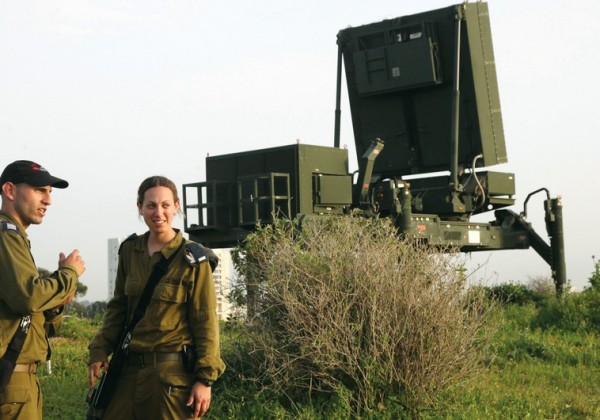
The challenge of Israeli diplomacy
Israeli diplomacy faces a challenge: on the one hand, it has to project an image of Israel as a powerful country; on the other, it has to project an image of Israel as a vulnerable country. Striking the right balance between the two is perhaps the most difficult challenge facing Israeli diplomacy.
Israel has to convey an image of power to deter and an image of vulnerability to convince. Israel is both powerful and vulnerable; conveying such an image to an international audience, often impressed by images devoid of context, is a particularly daunting task.

Inclusive education programmes are a key component to global security
There are all kinds of moral truths that see the world from different perspectives, and none of them have to necessarily be more right than the others. This underscores the significance of education: alongside family structure and cultural context, education has the capacity to influence every aspect of how we think about the world. It is crucial in our context of unprecedented globalization to put this powerful tool to use in the interest of tolerance and cultural understanding in ways that foster harmonious co-existence, and cultural synergies. When the fundamental importance of education becomes fully appreciated, it can be revitalized and adapted to encourage open-mindedness, inclusion and cooperation.

How the death penalty is slowly weakening its grip on Africa
There is an observable trend towards the abolition of the death penalty in Africa. More than two thirds of African states have now either abolished the practice or have long-standing moratoria on its use. As of October 2014, seventeen African states have abolished the death penalty by enacting national legislation. A further twenty-five State Parties have not carried out an execution for ten years. Only twelve states retain the death penalty and have recently used it, with the majority of executions occurring in Somalia or Sudan.
This trajectory parallels an interpretation of international human rights law as progressively abolitionist. Although the International Covenant on Civil and Political Rights (ICCPR) made a provision for countries that had not already abolished the death penalty, it established stringent conditions under which it could continue. In those countries where it remains, international safeguards aim to ensure legality and fair trial, principles of equality and consistency, and minimum standards of protection for vulnerable groups, as well as entailing imposition only for the most serious crimes. Concurrently, the African Commission on Human and Peoples’ Rights is working to attach an Optional Protocol to the African Charter for abolition.
Despite these promising trends, it is important not to overlook the shadow that the death penalty still casts. Where it remains, the death penalty can be imposed for offenses that do not meet the international legal threshold of “most serious crimes”. The case of Meriam Ibrahim, sentenced to death for apostasy in Sudan, brought this issue to global headlines earlier this year. Similarly, the extensive remit of military tribunals in Somalia remains a concern.

Are we fighting a just war against the Islamic State?
This question is a little provocative so a clarification is in order. There is a distinction between whether a war is just (jus ad bellum) and whether it is being conducted in a just manner (jus in bello). In the case of IS it is incontrovertible that there is just cause for war. I have argued elsewhere that what is happening in IS occupied territory is attempted genocide. This legitimises military intervention, especially since the Iraqi government has requested help. What I wish to examine here is whether this war is being conducted justly.
Just war theory provides us with several principles that limit what is morally permissible in war. There are two principles that give us cause for concern when assessing the intervention against IS: proportionality and non-combatant immunity. The first of these is the idea that the means of war must be proportional to the ends. Soldiers should aim for victory, but this does not mean that victory can be pursued by any means necessary. There must be, to use Michael Walzer’s term, an ‘economy of force’ (Walzer, Just and Unjust Wars, 129-33). A general should not waste the lives of his soldiers in a bloody offensive when there are more economical means to victory. He should not resort to tactics that will produce longstanding bitterness and prolong the war (such as taking no prisoners).
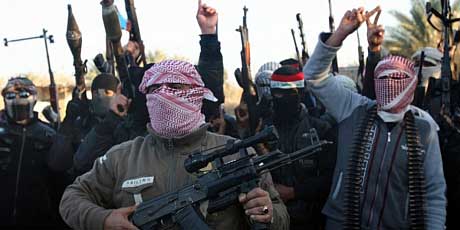
Is bombing ISIS atrocity prevention or a token gesture ?
Last week, the UK government voted, by a huge majority of 481 MPs, to engage in military action in Iraq. Now, once again, we are effectively at war in the Middle East.
For anyone committed to humanitarian inclinations, military force – so easily legitimated through hyperbolic statements of threat, and dramatic images of missiles precisely destroying targets through an aircraft’s gun-sights – should be treated with deep scepticism. Yet the tendency to reflexively reject and virulently condemn military action out of hand is no less lacking in critical reflection than the mindless swallowing of hawkish hyperbole.
The international community has rightly been condemned for standing by and allowing genocide to occur in Rwanda in 1994, and in Darfur in 2003. Is this a similar case? The unfolding and deepening disaster in Iraq seems very much of our own making; so will inaction make us again culpable in unspeakable human suffering? Or is the impulse to fight mere atavistic “war fever”?[1] To answer these questions we need to interrogate two more: first, is the threat of ISIS as great as is claimed? And second, will military action do any good?
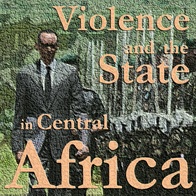
And so it continues…: Rwandan refugees and the latest bilateral politicking in the Great Lakes
The year 2002 marked the initiation of discussions concerning the suitability of invoking Article 1C(5) of the 1951 Convention Relating to the Status of Refugees to deal with the protracted Rwandan refugee caseload. This Article permits a declaration by countries and UNHCR that ‘the circumstances in connexion with which he [the refugee] has been recognised as a refugee have ceased to exist’, and therefore ‘he can no longer…continue to refuse to avail himself of the protection of the country of his nationality.’ In short, the ‘ceased circumstances’ Cessation Clause constitutes an international validation of positive change in post-conflict governance and the meaningful re-establishment of the citizen-state bond, as well as providing a legal normative framework for the repatriation of former refugees.
It is easy to see why the GoR so earnestly pushed for the invocation of the Cessation Clause throughout the Noughties. Internal and external legitimacy was waning under the weight of mounting evidence that domestic politics was partisan and exclusionary at best, authoritarian and murderous at worst. The regime wanted to repatriate potential opponents back to within the state’s jurisdiction. Achieving international consensus over the suitability of refugees returning to Rwanda was thus a potential way to refute accusations concerning human rights abuses within the country, and to exercise more control over possible critics. Controversially, the High Commissioner for Refugees announced support for the cancellation of status for all Rwandan refugees by the end of 2011. After seven years of lobbying and contestation, this therefore constituted a major victory for the RPF.

